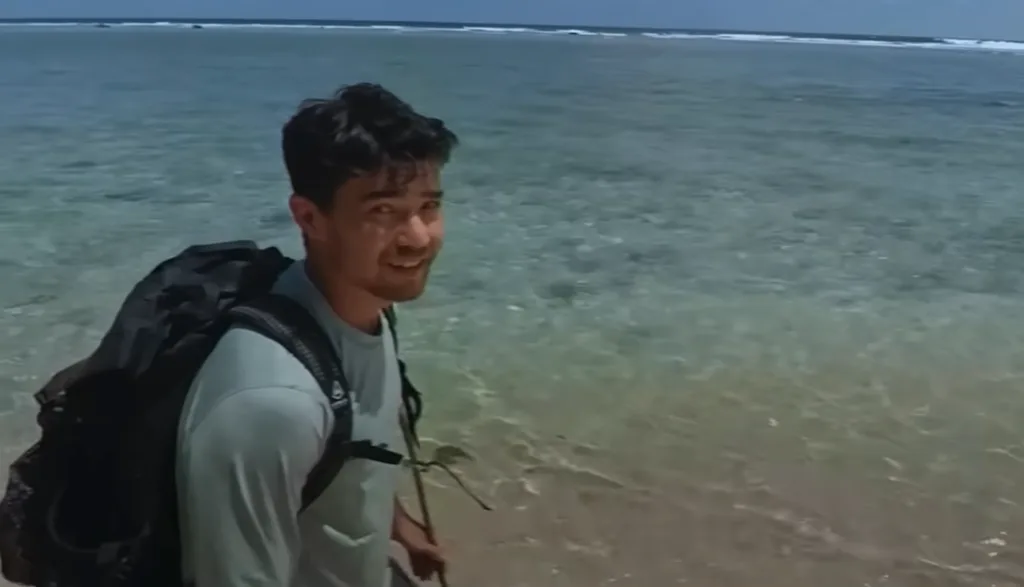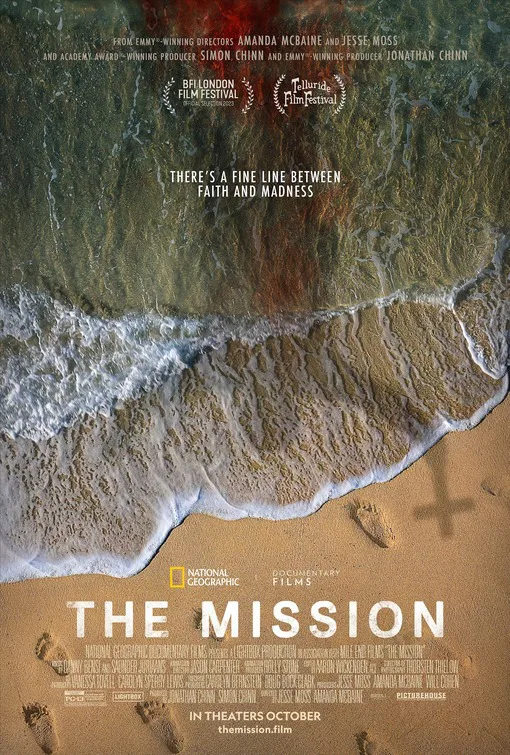John Allen Chau, the protagonist of “The Mission,” grew up with a different set of pop culture fixations than most young men of his era. Where most American boys born in the 1990s were into video games, anime, and superhero movies, Chau was obsessed with 19th and early 20th-century tales of exploration and wilderness suspense: The Adventures of Robinson Crusoe, The Adventures of Tintin, The Other Side of the Mountain. Chau was also a dedicated outdoorsman who got a job at a national park, mainly so he could hike any time he wanted. He grew up in a moderate Christian household, drifted into an Evangelical congregation, and became obsessed with proving his spiritual bona fides by traveling to one of a handful of remote areas still populated by hunter-gatherers and turning them to Christianity.
Chau took part in missionary trips to Mexico, South Africa, and Iraqi Kurdistan. He spent a lot of time online posting about missionary history, as well as the modern version. People who shared his obsession read his posts avidly. They saw him as an aspirational figure. He was so popular that he became an “influencer,” posting about certain gear and rations for paychecks. Chau was killed in 2018 during an illegal missionary trip to the Sentinel Islands off of the coast of India, in the Andaman Islands archipelago. That’s where Chau tried to endear himself to a community of 200 believed to be the last pre-Neolithic tribe on Earth. The tribe resisted Chau’s attempts to communicate with them. He kept hanging around and trying again until they shot him dead with an arrow.
One could take many angles on what Chau’s life and death “meant.” Werner Herzog often turned colonialist behavior into ghastly comedy with a sprig of cosmic bafflement (“Aguirre: The Wrath of God,” “Fitzcarraldo“), and it isn’t hard to imagine what he might have done with Chau’s story. Martin Scorsese explored the contradictions and absurdities of missionary work in 2016’s “Silence,” portraying Portuguese Jesuits in Japan as sunny-side-up Travis Bickles. There was a same-titled 1986 Roland Joffe film about Spanish Jesuits defending a local tribe against Portuguese slavers. Though visually and aurally spectacular (Ennio Morricone’s score is a cathedral unto itself), it was a confused movie, seeming to view the conversion of hunter-gatherers as an innately noble enterprise without considering the possibility that the Spanish Jesuits and the Portuguese were motivated by similar mindsets.
The biographical lead-up to Chau’s mission is fascinating because it shows the formation of a young mind. We see ordinary male bonding get custom-tooled by religion to the point where Chau and his two closest buddies make a pact to “watch out” for each other and prevent straying from the moral and righteous path (one of the filmmakers gets one of Chau’s friends to admit that the pact was mainly about not watching porn, which they all did anyway).
A few details are glossed over or elided in a way that creates mystery, such as the tidbit about Chau’s father, Patrick Chau, a psychiatrist, getting into trouble for improperly prescribing thyroid medicine to patients. The suggestion is that the ensuing scandal damaged the boy’s image of his father, who was Christian but saw the more extreme Evangelical sects as frightening and perhaps led him down the path that eventually brought him to the island. But it’s not presented that simplistically. It is just a thing that we, like the filmmakers, now wonder about. (Patrick Chau has blamed “extreme Christianity” for his son’s death.)
Filmmakers Amanda McBaine and Jesse Moss adopt a gentle, wise tone as they tell Chau’s story. But they situate it within the world of people who have either participated in or studied and written about Christian missionary work, excluding outside commentators and anyone who might view the idea and practice as something other than the outgrowth of a noble impulse. The movie itself never quite comes out and says what it thinks, even in a roundabout way. Mostly, it watches others talk about how this particular mission ended in violence and provide historical context that nibbles around the edges of a critique or appears to, such as the story of a Western explorer en route to a port city who encountered a family of natives from the tribe that he was studying on their own small boat in the ocean. He persuaded them to board his vessel and accompany him. The parents immediately sickened and died in port, and the explorer took the orphans home “with presents.”
The filmmakers’ approach closes off some avenues of possibility but opens others up. The execution isn’t sharp enough. There are stretches where the movie (inadvertently, one assumes) seems like an advertisement for its subject, as well as a documentary that could be shown in many American Sunday school classes without making parents mad.
But there are also pointed references to how the soon-to-be-defunct magazine version of National Geographic (corporate kin of National Geographic Channel, which distributes this movie) conditioned generations of Westerners to view the natural world mainly as a place to have adventures and nonwhite tribes as proof that people really are all the same inside and, simultaneously, exotic “others”, more symbols than people. (Lovingly lit 19th-century photos of tribespeople are followed by eugenics shots of them standing in front of measuring grids, their heads fitted with calipers.)
For all its near-miss moments, the inside-out approach of “The Mission” results in a richer film than one might have expected from reading the summary on a streaming menu. You ask questions of yourself as this tale unfolds. Where do my sympathies lie? Would I ever do something like that? How would I feel if somebody I knew did something like that and got killed? Whose eyes would I see through?
In limited release now.




















